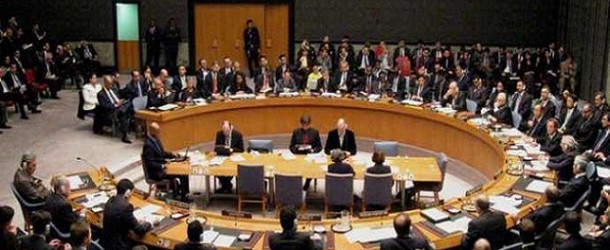The so-called “sanctions” are coercive measures imposed on a state (part of its territory or certain individuals) which fail to comply with obligations stemming from liabilities within the international legal relationship. In the meantime, the economic sanctions are interim measures that are more punishing, than verbal condemnations, but milder than use of military force. They are imposed both by certain states and by major international organizations such as the UN Security Council, European Union and etc.
There is a wide range of applicable sanctions in the international practice: commercial or trade (complete or partial embargo; cessation of technical maintenance), financial: (blocking of assets of foreign governments; restriction on provision of financial assistance; freezing of assets of individuals responsible for state’s illegal conduct by prohibiting the use of assets placed outside of their home country); sanctions on travel (restriction of travel abroad for some individuals or group of individuals; ban on any means of travel (mostly air communication).
Diplomatic sanctions may also be mentioned: (full or partial recall of diplomatic staff from the state-entity subjected to sanctions, cancelation of diplomatic visas); sport and cultural sanctions (ban on participation in sporting events for individuals or group of individuals representing the state – entity subjected to sanctions; cancelation of scientific-technical and cultural cooperation through exchange and travel of certain individuals or group of individuals representing the state-entity subjected to sanctions); procedural sanctions: (withdrawal of the right to vote, right of representation in the elected bodies of international organizations, rejection or exclusion from the membership in the international organization); travel ban: (used exclusively against individuals responsible for illegal conduct of the state and applied in the form of ban to leave the country); arms embargo (imposed on a state in general, and refers to a ban prohibiting weaponry supply by the rest of the nations).
Imposed in combination these sanctions are capable of significantly undermining economic and military-political potential of the ”punished” state and to destabilize domestic environment in the country. Nonetheless, judging by the recent events, such actions are not always and not in their entirety represent an efficient means of pressure against the subjects of sanctions that possess domestic resources and economic potential, telling examples being Russia and Iran.
Regardless, of several decades-long Western sanctions against Iran with respect to its nuclear program they have shown little effect, whereas these sanctions prohibit export to Iran of nuclear, missile and most of the military hardware, direct foreign investment in gas, oil and petrochemical industries, export of petrochemical products, as well as any contacts with the Army of the Guardians of the Islamic Revolution, banks and insurance companies, financial transactions and cooperation with the Navy of this country. Despite certain constraints on the Iranian economy, the sanctions are yet to produce the expected effect.
When it comes to Russia that is subjected to sanctions (growing exponentially) by the European Union, U.S., Canada and Japan, due to known events in Ukraine, they are only stimulating Russia’s drive for addressing its internal grievances and for strengthening its economic and military potential. In the meantime, the EU, unlike the U.S. is reluctant to introduce comprehensive financial-economic sanctions against Russia given the expected damages for the European economy.
Polish Foreign Minister Radoslaw Sikorski justifies the difference between American and European sanctions with the fact that Europe rests closer to Russia and all the economic problems will have dire implications for the nations to its West, something not too alarming for the U.S. If America’s trade turnover with Russia amounts to $40 billion, in case of the EU, the figure is ten times that amount.
American senator Chris Murphy acknowledges the risks and Europe’s vulnerability, ”There is no doubt that if you cut off Russian gas to Europe it will hurt. There is no doubt that if you freeze Russian assets in places like Germany and Great Britain it will hurt them”.
Thus, the times when imposing of harsh sanctions brought the pariah-nations to their knees are apparently becoming something of the past.
Parvin DARABADI
Doctor of historical sciences, Professor
























































